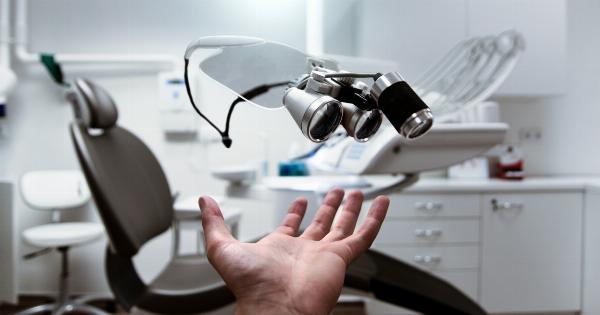Oral health plays a crucial role in our overall well-being. It encompasses the health of our teeth, gums, and mouth. Dental problems can cause immense pain and discomfort.
Various factors can contribute to oral health issues, including poor oral hygiene, unhealthy diet, and certain medications. In recent years, there has been increasing concern about the side effects of Kronoi on oral health. Kronoi, also known as the “time-altering” drug, has gained popularity in the market due to its ability to manipulate time perception.
However, it is important to understand the potential risks and side effects it may pose to our oral health.
1. Dry Mouth
One of the most common side effects of Kronoi on oral health is dry mouth. Dry mouth occurs when there is a decrease in saliva production.
Saliva plays a crucial role in maintaining oral health by neutralizing acids, washing away food debris, and preventing tooth decay. However, Kronoi can disrupt the normal functioning of salivary glands, leading to reduced saliva flow. This dryness can make it difficult to chew, swallow, and speak comfortably.
2. Dental Decay
A decrease in saliva flow caused by Kronoi can also increase the risk of dental decay. Saliva helps to remineralize teeth and protect them from acid attacks. Without adequate saliva, the teeth become more vulnerable to cavities and dental decay.
Kronoi users may experience an increase in plaque buildup, enamel erosion, and tooth sensitivity.
3. Gum Inflammation
Gum inflammation, also known as gingivitis, is another potential side effect of Kronoi. When the mouth becomes dry due to reduced saliva, harmful bacteria can multiply and cause gum infections.
This can lead to redness, swelling, tenderness, and bleeding of the gums. If left untreated, gingivitis can progress to periodontitis, a more severe form of gum disease that can cause tooth loss and damage to the jawbone.
4. Oral Candidiasis
Another side effect of Kronoi is an increased risk of developing oral candidiasis, commonly known as oral thrush. Kronoi disrupts the natural balance of microorganisms in the mouth, allowing the overgrowth of Candida fungus.
Oral thrush is characterized by the presence of creamy white lesions on the tongue, inner cheeks, and roof of the mouth. It can cause discomfort, difficulty in swallowing, and altered taste perception.
5. Temporomandibular Joint (TMJ) Disorders
Kronoi can also contribute to the development of temporomandibular joint (TMJ) disorders. These disorders affect the joint connecting the jawbone to the skull and can cause pain, stiffness, clicking, and difficulty in opening and closing the mouth.
The altered perception of time caused by Kronoi may affect the natural coordination of jaw movements, leading to TMJ issues.
6. Teeth Grinding (Bruxism)
Bruxism, commonly known as teeth grinding or jaw clenching, is another potential side effect of Kronoi. The altered time perception can induce stress and anxiety, leading to unconscious grinding or clenching of teeth.
Bruxism can cause tooth wear, jaw pain, headaches, and disrupted sleep patterns.
7. Altered Taste Sensation
Some Kronoi users have reported an altered taste sensation as a side effect. This can manifest as a metallic taste in the mouth or a distorted perception of flavors.
Altered taste sensation can affect appetite, food choices, and overall oral hygiene practices.
8. Mouth Sores
Using Kronoi may also increase the risk of developing mouth sores. These sores can occur on the tongue, inner cheeks, gums, or roof of the mouth. They can be painful, interfere with eating and speaking, and increase the risk of secondary infections.
9. Impaired Wound Healing
Impaired wound healing is another potential side effect of Kronoi on oral health. If you undergo any dental procedures or experience mouth injuries, the drugs’ effects on time perception may hinder the normal healing process.
Delayed wound healing can increase the risk of complications and infections.
10. Tooth Discoloration
Individuals using Kronoi may also experience tooth discoloration as a side effect. The altered time perception caused by the drug may disrupt daily oral hygiene routines, leading to poor plaque removal and staining of the teeth over time.
Conclusion
While Kronoi may have its benefits in altering time perception, it is crucial to consider the potential side effects it can have on oral health.
Dry mouth, dental decay, gum inflammation, oral candidiasis, TMJ disorders, bruxism, altered taste sensation, mouth sores, impaired wound healing, and tooth discoloration are among the potential risks. It is advisable to consult your healthcare provider and dentist before using Kronoi, especially if you have a history of oral health issues.
This will ensure a comprehensive evaluation of your oral health status and minimize the potential risks associated with the drug.





























